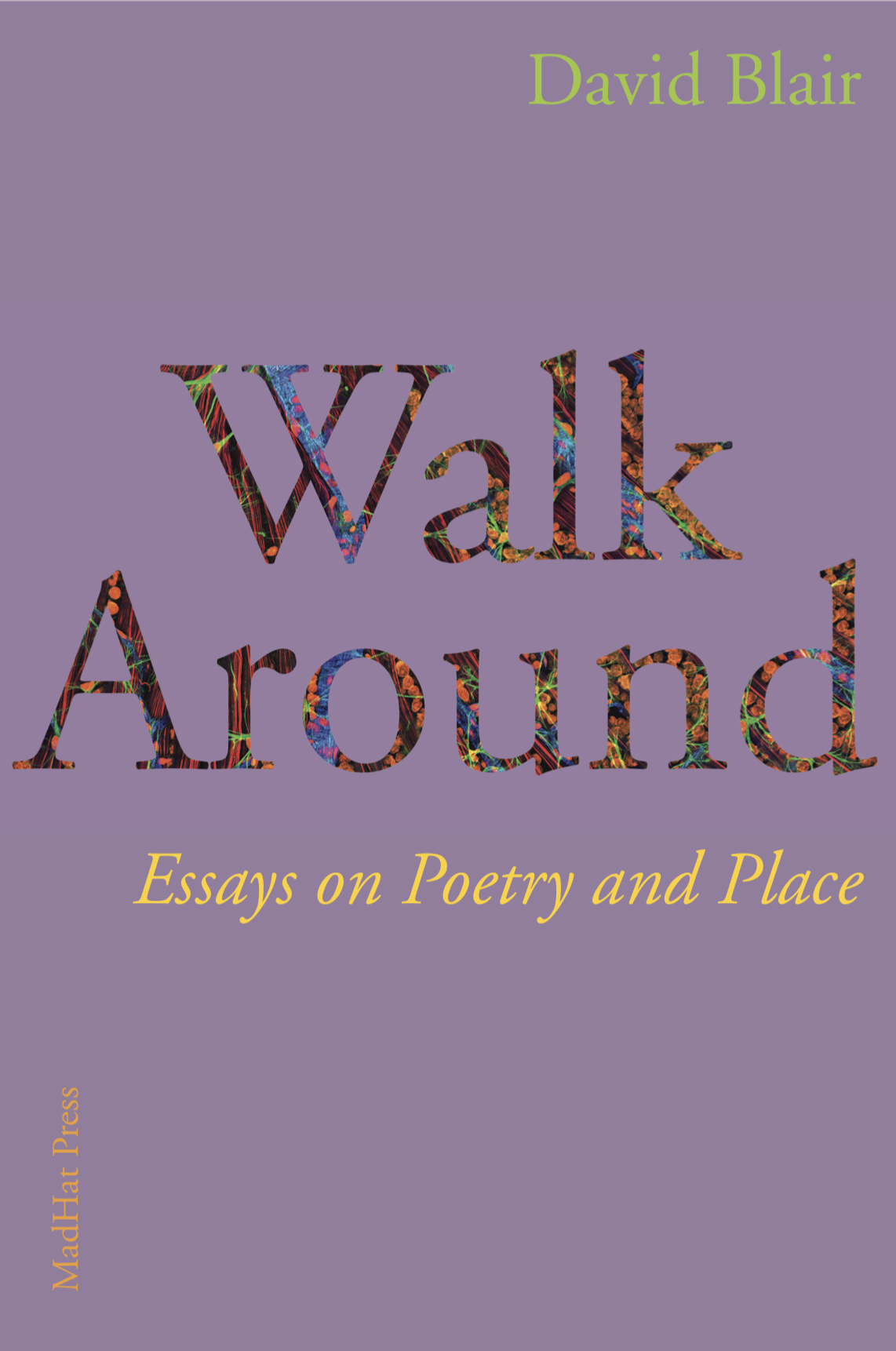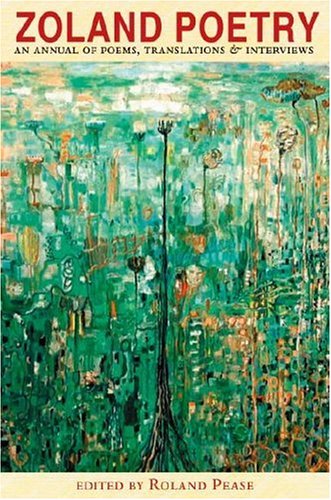BOOKS
Barbarian Seasons
“It is almost unfair how much pleasure David Blair takes in walking around and thinking. Unfashionably free of self-seriousness, his work calls the world it sees poetry mainly because he loves to talk about it. What nerve! How dare he experience such delight in having a body, such joy in being alive, such exuberance in thought, such solace in friendship, such stupid happiness in social life, in a world as cruel and miserable as this one? But underneath the humor and liveliness of these soliloquies lies a deep understanding of our actual Barbarian Seasons—the fact that we live both with and against each other. Blair can do this because he doesn’t think he’s exempt from the rapacious part of himself. He is a mystic contemplator whose hermitage is anywhere, a poet of private insight alive in our shared world.”
—Katie Peterson
Walk Around
In the first essay in this wonderful book, David Blair says that as you walk, “you become intensely aware in two directions"—to the outer world and into your own headspace. Also that while walking, you do what writers need to do: “you get out of your own way.” Blair’s essays are just like that. They’re so fresh because they are, as he writes of Seamus Heaney, “the opposite of self-impressed.” His own intense awareness extends in multiple directions. And as his thoughts stroll in and out of focus in these relaxed, funny, improvised pieces, we’re with him every step, “blended,” as he writes, “in kinship.”
— Sebastian Smee
For poet David Blair, in this engaging collection of essays, his definition of a “walk around” is affably loose-limbed. He takes us on observant rambles around a city, or through a poem, or down the Mean Streets of a movie on TV (“The movies,” he writes, “are pretty good poetry teachers”). He tips his hat with equalizing sincerity to Robert Lowell and Ella Fitzgerald, Seamus Heaney and screwball comedy. His stroll through an African-American literature syllabus is one of the best pieces I know about what makes a good teacher. Blair is a great guide—undogmatic, wide-eyed—and a terrific teacher, the kind who’ll try anything to get us to open our eyes wider, and then open them wider still.
—Lloyd Schwartz
Friends with Dogs
(Sheep Meadow Press, 2016)
A Must Read Selection for the 2018 Massachusetts Book Awards
“As in his wonderful celebratory poems in his previous books, these new poems celebrate the joys and plights of being citizens of a particular place and in a particular family, with bodies that are our own and individual but, being human, are also representative. He has this sense of how each one of us is one of us, and now this is so is brilliantly represented in these poems. I'm lost in admiration of the verve and pace of his lines, the energy and wit, the capacity for what I would call sympathetic pathos; and of how the poems convey their own joy in the experience of being written—and said, his language and its rhythms full of the sensations of actual speech.”
—David Ferry
“Friends With Dogs is like a long fast-paced walk with your weirdest, smartest friend. A sometimes lonely, sometimes lovesick tour guide, the speaker in the poems trampolines us from gazpacho to misbehaving dental hygienists, then moves us seamlessly through Boston streets, Irish buses, and family beaches as though the world were one endless city block. This book makes me want to believe in this connected world, to “shoot burning arrows of love” through all of the broken shiny pieces that create it, and then actually live there because, after all, it’s real.”
—Julia Story
Arsonville
(New Issues Poetry & Prose, 2016)
“David Blair, whose first book, Ascension Days, blew more than a few minds, is a wholly original American poet—his poems yammer and jam, they aria and catalogue and whine, combining kaleidoscopic perceptual and social detail with a sensibility that is smart, canny, but affectionate. If Frank O'Hara and James Schuyler were available these days, they might manage the kind of clear-eyed and street savvy impressionism that Blair possesses. He is here though, and they are not, and he raves, moonwalks, and bebops through these mean streets with a life force and contemporary bravado which is its own meaning. This is poetry owned by no aesthetic party or posse, yet which somehow includes them all.”
—Tony Hoagland
Ascension Days
(Del Sol Press, 2007)
Chosen by Thomas Lux for the 2007 Del Sol Poetry Prize
“What a strange and intense book this is! David Blair has a wild, restless imagination and he uses language like saw, a hammer, a velvet whip. He can write incredibly tender (and original) love poems and enfilading satirical poems, as well as many of the many other “kinds” of poems between those poles, and they all seem entirely at home, indeed, need to be in this book together. His music, his diction, his refusal to use (ever!) cliches, his syntax all drive his poems and their hearts forward. That is where his poems go: forward. He will be in the company of the best poets of his generation.”
—Thomas Lux
“David Blair's work is both public and discreet, somewhere between black box theatre and a blind date with an utterly beguiling stranger. His poems are dinner parties, intimate and sumptuous, arranged with great care and yet full of unforeseen turns: the pope gives way to 'the first red coils of the peonies' and a the hair of a lost aviator becomes ‘brown, fibrous light.’ How refreshingly unlike contemporary poetry this book is; a pleasure.”
—D. A. Powell
ANTHOLOGIES
Welcome to the Neighborhood: An Anthology of American Coexistence
Welcome to the Neighborhood: An Anthology of American Coexistence
Ohio University Press
Edited by Sarah Green
Devouring the Green: Fear of a Human Planet:
An Anthology of New Writing, Edited by Sam Witt
(Jaded Ibis, 2015)
The Best of Lady Churhill's Rosebud Wristlet,
Edited by Kelly Link and Gavin Grant
(Del Rey, 2007)
Zoland Poetry: An Annual of Poems,
Translations and Interviews—
Volume One, Edited by Roland Pease
(Steerforth, 2007)








